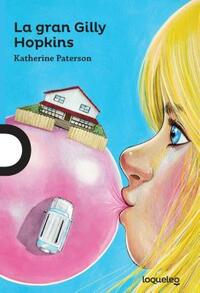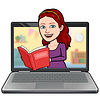Take a photo of a barcode or cover
1. I loved this book as a kid.
2. IT'S A MOVIE AND I DIDN'T KNOW IT WAS BEING ADAPTED AND NOW I'M EXCITED AND SCARED.
2. IT'S A MOVIE AND I DIDN'T KNOW IT WAS BEING ADAPTED AND NOW I'M EXCITED AND SCARED.
I hated this kid for over half the book, but I loved her by the end. It’s not the ending that you want, but sort of goes with the theme of the book. Life is not all happy endings and lovely homes.
“Tell me all about yourself. I want to get to know you.”
That’s not how you get to know people. Don’t you know? You can’t talk it out, you got to live into their lives, bad and good.
Sometimes in this world things come easy, and you tend to lean back and say, “Well, finally, happy ending. This is the way things is supposed to be.” Like life owed you good things.....but you just fool yourself if you expect good things all the time. They ain’t what’s regular—don’t nobody owe ‘em to you.
“Tell me all about yourself. I want to get to know you.”
That’s not how you get to know people. Don’t you know? You can’t talk it out, you got to live into their lives, bad and good.
Sometimes in this world things come easy, and you tend to lean back and say, “Well, finally, happy ending. This is the way things is supposed to be.” Like life owed you good things.....but you just fool yourself if you expect good things all the time. They ain’t what’s regular—don’t nobody owe ‘em to you.
I support independent bookstores. You can use this link to find one near you: http://www.indiebound.org
Well I'm not actually convinced that kids actually like this book, but as an adult reading a kids book, great! This book has a heartbreaking ending that is very realistic.
Just reread it again. Still love it.
Just reread it again. Still love it.
emotional
fast-paced
Plot or Character Driven:
Plot
Strong character development:
Yes
Loveable characters:
Yes
Diverse cast of characters:
Yes
Well I'll be damned... Freaking amazing!! Talk about a "complex book for a kid!" But really, really good!
I haven't read it for ages, I think it was 5/6 years ago now, but I remember that I really enjoyed it.
So rare to see a genuinely smart, snarky, bad-kid main character who's not (a) basically an adult for adult audiences, or (b) dumbed down or softened for a young audience. This turns into a really sentimental book (as many of KP's do), but it feels earned.
The Great Gilly Hopkins is one of my all-time favorite books. Originally published in 1978 it loses none of its power or wisdom with the passing of years.
Gilly is eleven years old and has been in the foster care system for six years. Full of anger and hurt, Gilly has been moved in and out of many foster homes. She is convinced that if she could just find her real mother her life would be perfect. In the meantime the story opens with her caseworker taking her to yet another new foster home. This one is run by Maime Trotter.
Maime Trotter has no end of patience, kindness and compassion for Gilly. Gilly, however, has no intention of allowing Maime to indulge in any of those things, regardless of how badly she really does want them. In this is the authenticity of Gilly’s character. What child, having been hurt and abandoned repeatedly, would willingly allow herself to be vulnerable with anyone?
Trotter is an extraordainary woman. Her wisdom is down-to-earth and understated. Gilly’s anger manifests itself in cruel behavior–especially verbally. Maime seems to understand that Gilly’s behavior comes from her own pain and anger. She is able to see Gilly’s heart when others are unable to. When Gilly crosses the line in her bigoted comments about Maime’s neighbor and friend and her hurtful remarks about being “retarded” in reference to her foster brother, W.E., Maime Trotter does not hesitate to let Gilly know this is unacceptable.
Maime is an unwavering source of protection, empathy and joy. Almost against her will Gilly begins to experience insights into her own thoughts and behavior. She finds in Maime the unconditional love and support she craves. She realizes its value in its entirety when she walks away from it.
One of the best qualities of this book is that its ending is incredibly true-to-life. It is not an unhappy ending. There is every reason to feel hopeful and positive for Gilly when we leave her. The reality of her situation is that she has made choices for misguided reasons with which she must now live. Even though things do not turn out as Gilly wants, she is better equipped to go forward in life because she has had the extraordinary power of true love and friendship enter her life. Those are things that change who we are for the better.
I highly recommend this book, but caution that it is not for young readers due to content. Gilly is very outspoken in her judgements of people and in the beginning (before Maime’s influence) they are jarring and distasteful. This is why, although I think it’s an excellent book for all readers grades 4 and up, I would carefully consider my audience before a used it as a read-aloud selection.
Gilly is eleven years old and has been in the foster care system for six years. Full of anger and hurt, Gilly has been moved in and out of many foster homes. She is convinced that if she could just find her real mother her life would be perfect. In the meantime the story opens with her caseworker taking her to yet another new foster home. This one is run by Maime Trotter.
Maime Trotter has no end of patience, kindness and compassion for Gilly. Gilly, however, has no intention of allowing Maime to indulge in any of those things, regardless of how badly she really does want them. In this is the authenticity of Gilly’s character. What child, having been hurt and abandoned repeatedly, would willingly allow herself to be vulnerable with anyone?
Trotter is an extraordainary woman. Her wisdom is down-to-earth and understated. Gilly’s anger manifests itself in cruel behavior–especially verbally. Maime seems to understand that Gilly’s behavior comes from her own pain and anger. She is able to see Gilly’s heart when others are unable to. When Gilly crosses the line in her bigoted comments about Maime’s neighbor and friend and her hurtful remarks about being “retarded” in reference to her foster brother, W.E., Maime Trotter does not hesitate to let Gilly know this is unacceptable.
Maime is an unwavering source of protection, empathy and joy. Almost against her will Gilly begins to experience insights into her own thoughts and behavior. She finds in Maime the unconditional love and support she craves. She realizes its value in its entirety when she walks away from it.
One of the best qualities of this book is that its ending is incredibly true-to-life. It is not an unhappy ending. There is every reason to feel hopeful and positive for Gilly when we leave her. The reality of her situation is that she has made choices for misguided reasons with which she must now live. Even though things do not turn out as Gilly wants, she is better equipped to go forward in life because she has had the extraordinary power of true love and friendship enter her life. Those are things that change who we are for the better.
I highly recommend this book, but caution that it is not for young readers due to content. Gilly is very outspoken in her judgements of people and in the beginning (before Maime’s influence) they are jarring and distasteful. This is why, although I think it’s an excellent book for all readers grades 4 and up, I would carefully consider my audience before a used it as a read-aloud selection.




